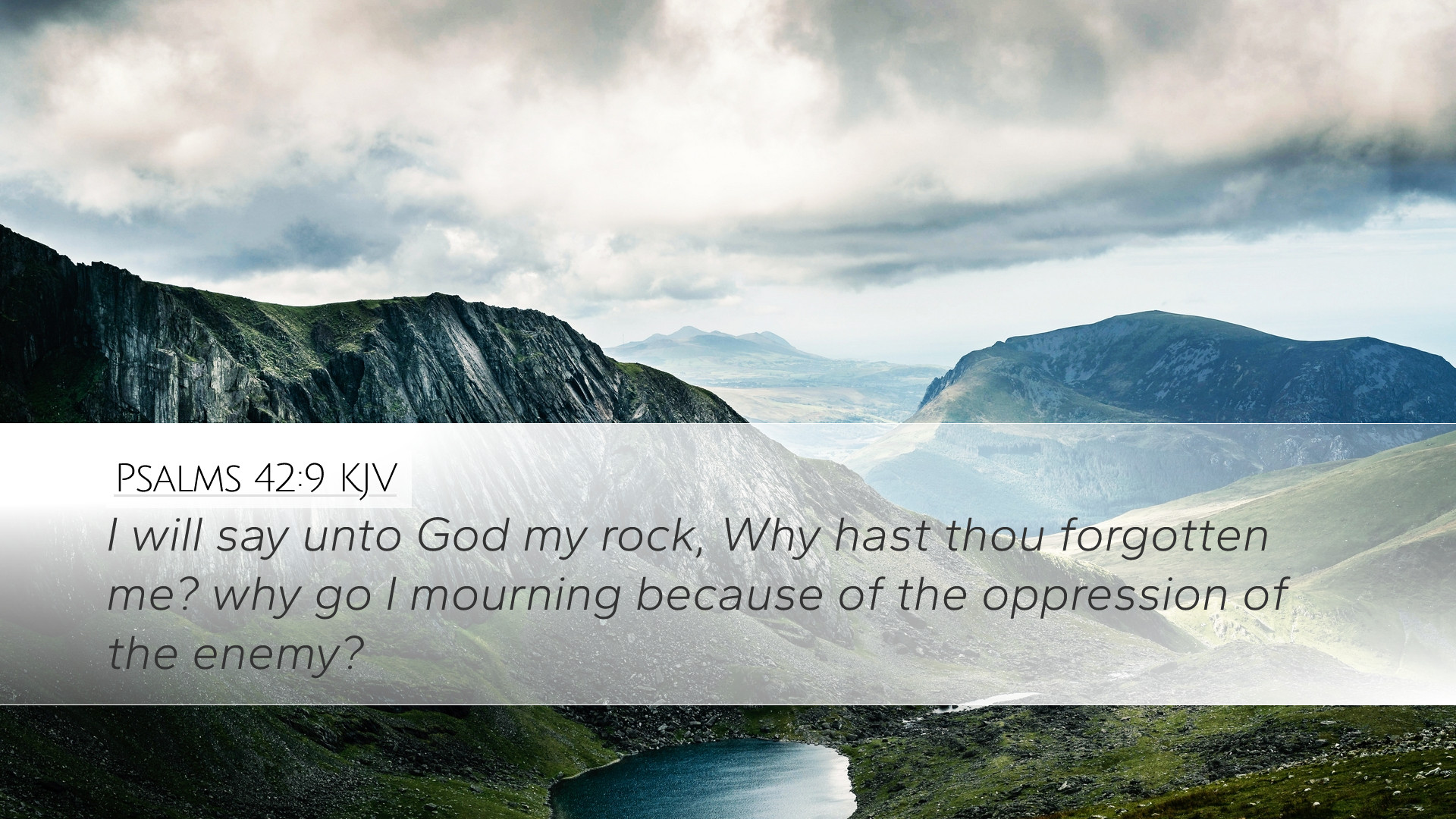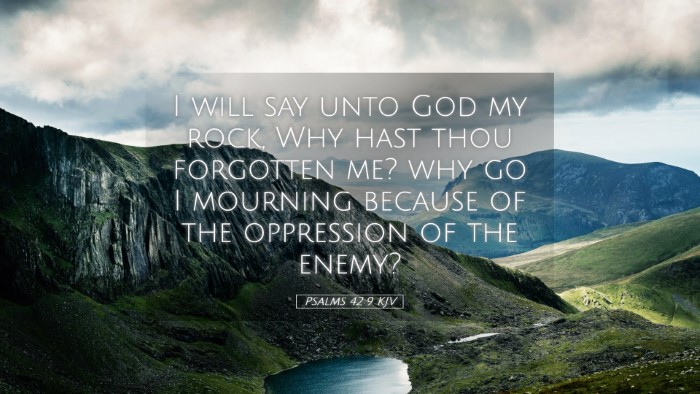Commentary on Psalms 42:9
Bible Verse: "I will say unto God my rock, Why hast thou forgotten me? why go I mourning because of the oppression of the enemy?" (Psalms 42:9)
Introduction
The verse from Psalms 42:9 is a poignant expression of the struggle between faith and despair. The psalmist voices a profound question to God, his constant and immutable rock, conveying feelings of abandonment amidst suffering and sorrow. This commentary synthesizes insights from Matthew Henry, Albert Barnes, and Adam Clarke to provide a comprehensive theological exploration of this verse.
Contextual Analysis
The Psalms are a reflection of the human experience in its various forms, from joy to lamentation. Psalms 42 captures a longing for God and a deep sorrow over the perceived distance from Him. The context reveals the psalmist's inner turmoil as he grapples with his faith against the backdrop of physical and spiritual distress.
Significance of the Address
The psalmist identifies God as "my rock," a term denoting stability and strength. In this address, the psalmist acknowledges God’s protective nature, suggesting a covenant relationship. Despite this acknowledgment, he contrasts his faith with an overwhelming sense of abandonment, enhancing the depth of his heart’s cry.
Theological Themes
-
Divine Abandonment
Henry notes that the psalmist feels as though God has forgotten him, reflecting a common human sentiment when faced with hardship. This feeling raises questions about God's presence during trials. Theologically, the tension between God’s promises and human experience becomes an area of exploration for many believers.
-
Emotional Turmoil
Barnes highlights the emotional state of the psalmist, who is "mourning" due to the "oppression of the enemy." The psalmist's sorrow encapsulates feelings of vulnerability and despair, making this text relatable for many who find themselves in similar circumstances.
-
Communicative Prayer
Clarke emphasizes the importance of prayer in expressing one's feelings to God. The psalmist’s question is not only a cry of distress but also an act of faith that implicit belief in God’s ability to respond. By asking why, the psalmist engages in a dialogue that seeks understanding and reassurance.
Exegetical Insights
The use of the term "Why" in this verse signifies the depth of the psalmist’s confusion and sorrow. It conveys a sense of urgency and desperation for answers as he grapples with his circumstances. The question suggests a yearning for divine communication, indicative of a relationship in turmoil.
God as Rock
The metaphor of God as a "rock" is foundational in scriptural language, representing steadfastness and refuge. However, this solid foundation is juxtaposed with the psalmist's feelings of abandonment. This paradox invites readers to reflect on the stability of God’s nature compared to the turmoil of human experience.
Pastoral Application
For pastors and theologians, this verse is a rich source for understanding the complexities of faith under pressure. It serves as a reminder of the legitimacy of questioning in prayer, fostering an environment where congregants are encouraged to voice their frustrations and uncertainties to God.
Fostering Honest Dialogue
This verse can catalyze sermons and teachings aimed at normalizing the expression of doubts and sorrow in the faith community. Encouraging honest dialogue reinforces a community of believers who support one another amidst trials and tribulations.
Concluding Thoughts
In conclusion, Psalms 42:9 resonates deeply within the human experience of faith and doubt. Through the lens of public domain commentaries, one discovers the multifaceted nature of the relationship between the believer and God. This verse transcends its ancient origins, offering contemporary Christians a framework for navigating their spiritual journeys, particularly in times of crisis.


